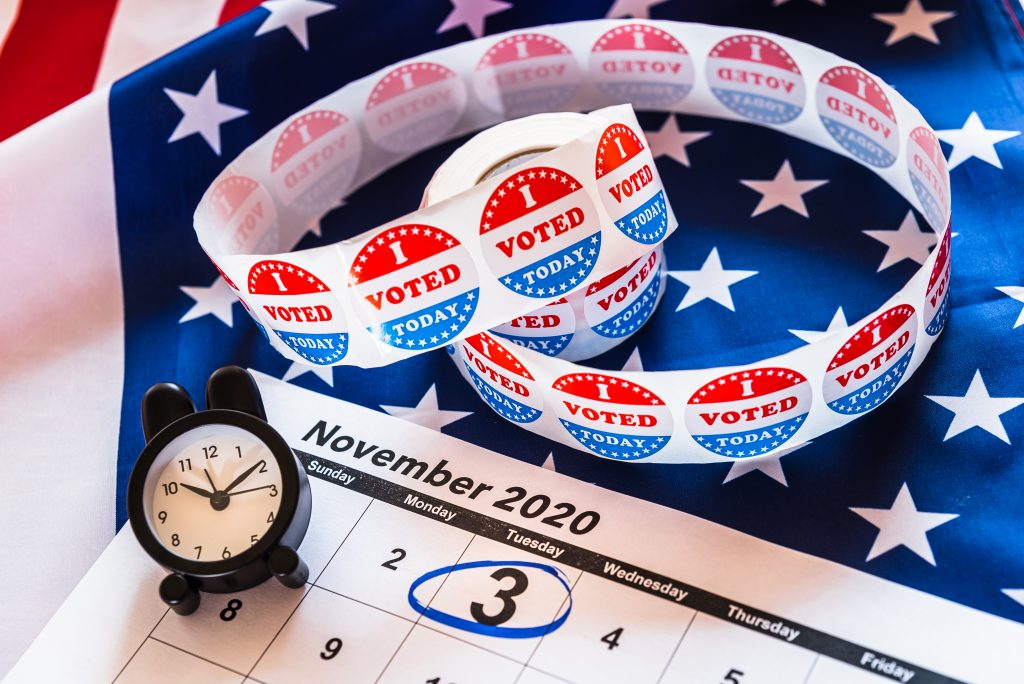As Election Day rapidly approaches, tensions are undeniably high and intense for everyone, regardless of where you stand on the political spectrum. In the midst of a global pandemic, increasing climate catastrophes, an economic recession, civil rights movements and more, many of our lives will be impacted based on the outcome of this presidential election. This coincides with college students having some of the highest levels of stress in recorded history. With an active life-threatening disease going around, being thrust into one of the worst job markets of the century, a semester with no breaks and an increased workload, the last thing we need is the state of our life changing drastically depending on who is in power come January. That being said, here are some tips to help cope with Election Day anxiety and minimize the stress of uncertainty associated with it.
Have a voting plan
A great way to channel Election Day anxiety in a productive way is to create a plan as to how you will cast your ballot. This may be in-person on Election Day, early through an absentee ballot or more. Either way, formulating a plan to make sure your vote is counted and your ballot is filled out correctly is a great way to reduce anxiety, partake in democracy and make your voice heard. Don’t forget — while the presidential election is what attracts the most coverage, down-ballot local and state elections are also taking place this year, and are equally as important. Voting for your local representative means choosing who will speak for you at the local, state and national levels — they can determine the direction in which you want to take your community. Remember to educate yourself on who is running for local and state government and make sure to make your voice heard.
Don’t dwell on worst-case scenarios
It’s easy to get ahead of yourself and ponder all the ways in which you could be negatively impacted by the election. While it’s important to keep in mind what’s at stake this November, fearing the worst outcome before it has even happened does nothing but increase your stress. Realistically, your life may not be drastically different come January. Playing out “what-ifs” in your head is a poor use of your energy and time. There is no need to worry about something that has yet to happen. Instead, focus on the present and what you can do to be a better citizen, friend, family member and friend to yourself in these tumultuous times.
Keep yourself busy on Election Day
Election Day may be incredibly stressful for everyone. However, you don’t need to sit in front of the TV all day, waiting for votes to be counted and states to be determined as blue or red. You will find out who is president either way, so if watching live news coverage of the election stresses you out, there is no need to. You can avoid it by planning your Election Day so that you will be distracted by other activities while votes are being counted. For example, instead of watching the news on Election Night, plan to cook up an elaborate meal with your roommates, work on that paper you’ve been avoiding, you can even go out for a walk in nature. These may all be more productive uses of your time and energy than watching something you know will cause you a great deal of stress.
Avoid excessive media consumption and only trust reliable and verified sources
In today’s media, there is a lot of fearmongering and headlines meant to induce anxiety, thereby capturing your attention and garnering more views. With smartphones and the Internet, you can read news stories from a myriad of sources all over the world just by tapping a button on a screen. This constant flow of information can be exciting, but it can also be stressful when there are countless sources trying to push a story on you that will negatively impact your mental and emotional well-being. To combat this, limit your media consumption to a handful of trustworthy, accurate and unbiased news sources. Make sure you are reading or watching the news for only 15 to 20 minutes a day. This way, you will be able to stay informed while not letting the news and current events take over your thoughts. Avoiding media may also mean avoiding social media as many people and politicians post politically charged content on all social media platforms. Social media’s addictive nature is designed to keep you on the platform for as long as possible, even if that means you see something you didn’t want to and it takes a toll on your mental health. Set time limits for your news feed and social media and make sure you’re spending personal time away from the internet.
Volunteer
With so much negativity in the world and in politics, a great way to relieve pent up nervousness is to volunteer for a cause you are passionate about. Whether this means canvassing for a political campaign, volunteering at a shelter or food bank, protesting against police brutality or working as a poll worker on Election Day is totally up to you. Working alongside people who are passionate about the same causes as you and raising awareness is a fulfilling and valuable experience that can help mitigate Election Day stress.
I hope these recommendations will help make the upcoming weeks feel a little less heavy. As always, stay safe and informed and get out and vote!



